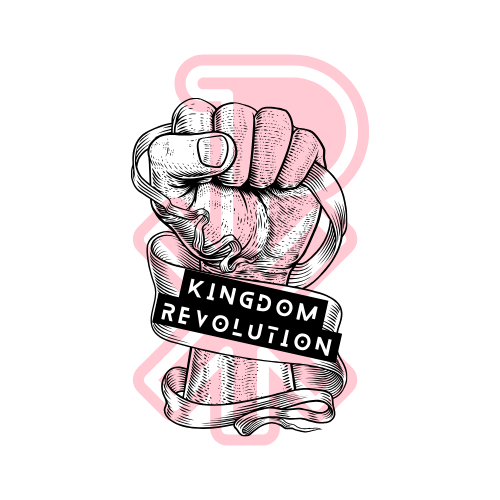In the eleventh chapter of Genesis we meet a man named Abram – whose name would later be Abraham – the son of a man named Terah.
Terah raised his family in the cosmopolitan (that is to say, without national prejudices or peculiarities) city of Ur. This city was built near the Euphrates River in what is now southern Iraq.
That means that, had he grown up in today’s world – according to our modern map, he would’ve been an Iraqi citizen. He had been born, raised and married in Ur, just across the river from the southern Iraqi town of Nasirya – which was a hard-fought holdout during the 2003 war when American and British troops ousted the dictator Saddam Hussein.
According to Stephen M. Miller, author of ‘Who’s Who and Where’s Where in the Bible’: “Ur was the New York City of four thousand years ago – the world’s hub of culture, power and wealth.”
Ur is one of the oldest cities ever discovered – estimated to be about sixty-five hundred years old. It grew to become the capital, or control centre, of the world’s first real empire – Sumer!
In Abraham’s day this city was at its peak, but a century later was destroyed by invaders. Critics have stated that Abraham’s father (Terah) might have seen the hints, signs of such an invasion, and that was his reason for moving his family six hundred miles upriver to settle in the caravan town of Haran.
We read in Genesis 11:29-32: that Abraham and his brother Nahor had taken wives – Abraham married a girl named Sarai (Sarah) whose name means ‘princess’ and she was found to be infertile. Terah, the father of Abraham then took his family – including Lot, the son of Haran, and they left for Canaan, but never made it there, instead settling in the land that bore the same name as his dead son.
They only made their way about half way and came to this village (Haran), its name an Akkadian word meaning ‘road’. Apparently he liked the wonderful pastures and plentiful water he found there and stayed until he died at the age of two hundred and five.
At that point Abraham was about seventy-five years old.
In Genesis 12:1-2: we read:
The Lord had said to Abram, “Leave your native country, your relatives, and your father’s family, and go to the land that I will show you. I will make you into a great nation. I will bless you and make you famous, and you will be a blessing to others. (NLT)
The Lord speaks to Abraham saying – I have a plan for your life! I want to use you to bless others! I have prepared a land for you, I have a gift to give you – one that will raise you up beyond the physical and worldly stature of your peers! I want to bless you and write your name in the annals of history! Abraham! I have plans for you – and all you need to do is get up and go where I lead! Answer this call and everything will be given unto you!
God calls Abraham – answering the one question we all have racing through our minds. In this series we ask – why are we here? What is the purpose of life?
God answers, using the same words He spoke unto Abraham – Leave your native country, your relatives and your father’s family – your comfort zone – and follow Me to the land that I will show you – to the place I have in mind for you! I will make you into a great nation – I will make you a part of My family, My church! I will bless you and make you famous (give you an audience – whether 5 or 5 thousand) – I will consecrate you and make you remarkable in the eyes of your peers – and you will be a blessing to others, you will glorify Me!
How do we react? How do we claim this promise? How do we make these words our own?
As we will see, throughout the duration of this workshop, God promises us many things – gifts and ministries – and we need to react to His words, each and every time, in faith. It is through faith and faith alone that we claim and apply His promises and victory!
The author of Hebrews writes the following:
8 By faith Abraham, when he was called to go out into a place which he should after receive for an inheritance, obeyed; and he went out, not knowing whither he went. 9 By faith he sojourned in the land of promise, as in a strange country, dwelling in tabernacles with Isaac and Jacob, the heirs with him of the same promise: 10 For he looked for a city which hath foundations, whose builder and maker is God. (Hebrews 11:8-10: KJV)
What the author is saying is that Abraham, through faith – trusting that the word God had given him was true and faithful – left his old life behind and obeyed completely, going out to seek the land of promise, looking for a city which had its foundations in the Lord – whose builder and maker is God!
By faith he trusted in the Lord and went out, following but not knowing where.
He submitted wholly to the Lord God and His plan.
This reading is entitled Faith and Action.
Faith is an uncompromising trust, the assent of the mind to the truth of what is declared by another, resting solely and implicitly on his authority and veracity; reliance on testimony.
In this case he put his trust solely in the word of God spoken unto Him, trusting the authority and veracity of the One who spoke it.
This led to action. Action is the process or condition of acting or moving, as opposed to rest; the doing of something; exertion of power or force, as when one body acts on another; the effect of power exerted on one body by another; agency; activity; operation; as, the action of heat; a man of action.
He moved, in response to the promise of God, into the will and way of the Lord.
Everything in life is bound to these two things – faith and action.
Faith determines our expectations – and this spurs on our actions. We believe that we will see water when we turn the tap. We have faith that gravity will keep us down to earth – even though most of us can’t really explain what gravity is.
We act – and our actions have consequences and results. We walk, we talk, we think – all of these are actions.
Faith and action is a daily part of our physical lives, but how often do we apply this to the spiritual sphere that surrounds us? How often do we grasp the spiritual truth in God’s Word and act on it?
How often do we believe what we read in the Bible during our quiet time or daily reading?
How often do we believe and do?
Right now God is saying: I have plans for you – are you willing to get up and go? Are you ready to leave all your ideals and ideas behind and follow Me to the land I have prepared for you?
Are you willing to choose God’s way and stay on it wherever it may lead?
Reflect:
1. Imagine for a moment what the promised land of your calling looks like. What is it God wants to do through you and for you? What are some of the closed doors between you and fulfilling your calling? What are the two keys that will unlock the way forward for you to step into this destiny?
2. How do you define faith? What does it look like, right now, to trust God with your calling and your future?
3. Action is a physical and material response based on our faith. What action can you take today as a step towards your calling?
Prayer: Lord, help me today to have complete trust in Your Word. Let Your Word come alive in my heart and let it be a lamp unto my feet – guiding me, leading me onward through the darkness of uncertainty. Give me wisdom, Lord, give me strategies and a way forward so that Your will might be done in and through my life. In Jesus Name. Amen.

